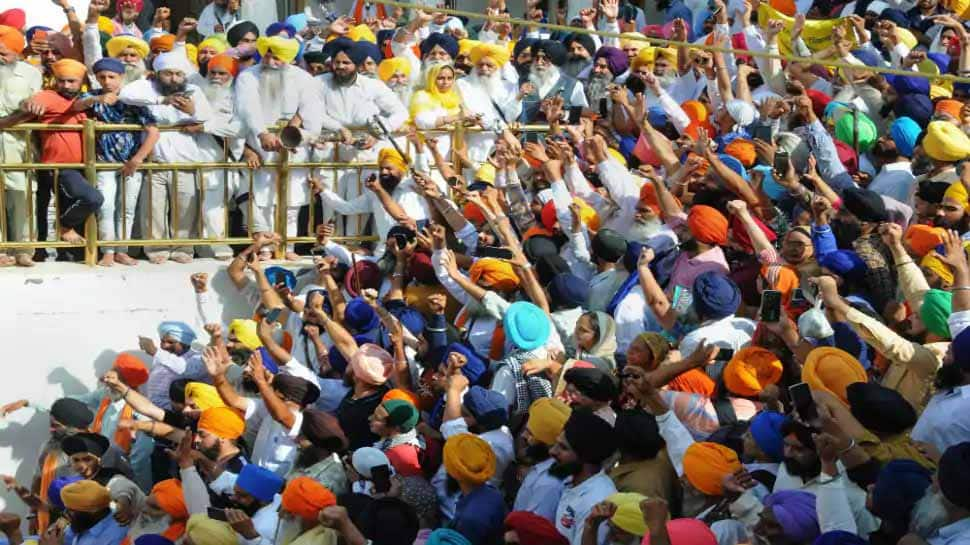New Delhi: The Sikh separatists in the West are purportedly trying to drum up interest in a referendum on their demand for an independent state called Khalistan – meaning, Land of the Pure. But India has banned the referendum and interest is low among Sikhs. In Punjab, millions of Sikhs voted for a fiercely anti-separatist state government.
A closer look suggests that it’s Pakistanis, not Khalistanis, who are driving the campaign.
In “Khalistan: A Project of Pakistan” senior journalist Terry Milewski reveals the concept of Khalistan as a project of Pakistan, designed to subvert the national security of both Canada and India.
“No matter how low the support for Khalistan sinks in India – and it has sunk very low indeed – the cause still survives in Pakistan, where jihadist groups have made common cause with Sikh separatists against their shared enemy, India,” writes Terry Milewski.
An example is the leading Khalistani figure in Pakistan, Gopal Singh Chawla, who makes no bones about his friendly alliance with Pakistan's Hafiz Saeed, leader of Lashkar-e-Taiba. Saeed directed the terrorist attacks of November 2008 that killed 166 people in Mumbai. He is now in prison. Chawla told an Indian reporter that “Hafiz Saeed is my ideal person".
The report added, “For Canadian-Sikh separatists, the Pakistan connection has been problematic, but still essential. As we’ve seen, Babbar Khalsa terrorist and Talwinder Parmar certainly knew where to go when he fled Canada. A picture from a Pakistani gun bazaar at Darra, near the Afghan frontier, shows him hefting an antique machine gun in in July, 1989.”
Another Canadian citizen, Satinderpal Singh Gill from Surrey, BC, actually lived for years in Pakistan as a senior official of the International Sikh Youth Federation – banned as a terrorist organization in India, Canada, the UK and the US, but not in Pakistan.
More recently, two other Canadians, Bhagat Singh Brar and Parvkar Singh Dulai, are fighting their inclusion on a government no-fly list, after the Canadian Security Intelligence Service (CSIS) accused them of aiding Khalistani terrorist activities in India. Brar, it said, was among a group of individuals linked to and co-operating with the Pak ISI.
For his part, Dulai has long been a prominent figure at the Dasmesh Darbar gurdwara in Surrey, BC, where “martyr” posters of Talwinder Parmar have a place of honour. Dulai insists he has nothing to do with Sikh extremists but, until it was banned as a terrorist organization in 2003, he posted on the Internet a photo of himself wearing the colours of the Babbar Khalsa, founded by Parmar. Neither he nor Brar has been charged with any crime in Canada.
According to an official count by the Punjab Police (KPS Gill Undated), the 12 years of Sikh insurgency ending in 1993 were scarred by hijackings, stabbings, shootings and bombings which took a staggering 21,469 lives – and most of the victims, whether civilian, police or separatist fighters, were Sikhs.
Fourteen hundred Punjab policemen were murdered, along with many of their family members. Farmers, judges, teachers, journalists, bankers who lent to the wrong people, and delivery men who brought the wrong newspapers were all butchered.
Former Prime Minister Manmohan Singh, on a visit to Toronto in 2010, made a point of condemning Sikh extremism on Canadian soil. “Sikh extremism, separatism and militancy were a problem in India more than two decades ago,” he said. “Today, Punjab is at peace and there is growth and prosperity,” he had said.
“It appears, then, that Pakistan wants the Sikhs to be free, but not in Pakistan. The separatists, in turn, clearly know where their patron sets the limits. Even drawing a map which presumes upon Pakistan’s generosity is a step too far – one that could sever the lifeline which has sustained the dream of Khalistan for so long. Judging by the silence, even the fiercest Khalistanis feel they must accept this abbreviated, Pakistani version of their new country without a murmur of dissent.” writes Terry Milewski.
As per report, Punjabi writer and broadcaster Tarek Fatah, a Muslim who lives in Canada, recalls how in 1973 as a young journalist he had heard Pakistan’s then prime minister Zulfikar Ali Bhutto telling a group of reporters that Pakistan would tear off a piece of India – Khalistan – to avenge the loss of the 1971 war with India, in which East Pakistan was torn off and turned into independent Bangladesh.
“Pakistan will also have Bangladesh carved out of India,” Bhutto promised, “except it will be on Pakistan’s border.”
But the Pakistani interest in Khalistan was not confined to revenge and it only grew more intense under his successor, General Muhammad Zia-ul-Haq. Husain Haqqani, a former Pakistani Ambassador to Washington, says that “bleeding” India was certainly the main motive, but a second was to create a strategic “buffer” between India and Pakistan.
Thirdly, he says, a state of Khalistan would “end India’s land access to Kashmir,” to the north – another key interest for the Pakistani leadership. Haqqani adds, though, that the creation of a Sikh state remains implausible, leaving only the original motivation for pursuing it: causing India pain.
















